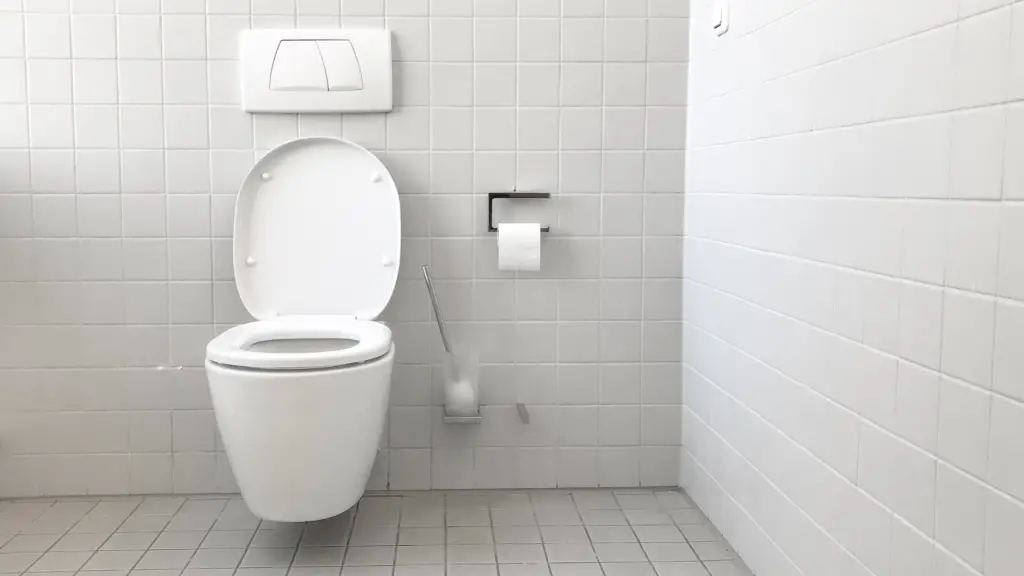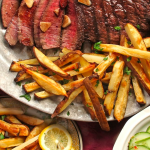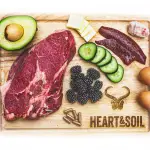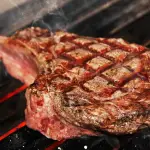One of the most common carnivore diet side effects for people starting an animal-based way of eating is diarrhea.
First, don’t worry — the carnivore diet has pros and cons, and if you’re experiencing diarrhea, it’s perfectly normal and it will eventually stop. It’s usually just a sign that your body is adapting to the carnivore diet and your gut bacteria is changing.
You might also be experiencing a carnivore diet headache during this transition phase, or even carnivore diet constipation. These will both stop with time too.
In this article, we focus on what causes diarrhea, and how you can stop it.
TABLE OF CONTENTS
What Causes Diarrhea on the Carnivore Diet?

Here are the most common causes of diarrhea on the carnivore diet:
Change in Gut Bacteria
Our gut is home to billions of bacteria. Some of these bacteria help digestion and prevent the growth of harmful microorganisms.
Gut bacteria usually feed on soluble fibers, which are present in complex carbohydrates. With a change in diet and reduction in carbs, your gut microbiota changes. Since the carnivore diet is essentially carbohydrate-free, gut bacteria get very little to no carbohydrates to feed upon, and some die off.
As a result, the gut tries to excrete them, which results in diarrhea.
Don’t worry though — the carnivore diet is excellent for gut health, and diarrhea is just a sign of your gut resetting. In fact, the carnivore diet is good for SIBO and other gut-related conditions because it balances your microbiome.
Low Glycogen Stores
Glycogen in the liver and muscles is a storage form of glucose and gets used up when you restrict the body of carbohydrates for a long time.
Glycogen also binds up water and stores it. When glycogen is used up, water is released and excreted. This may also worsen diarrhea.
Consumption of Fat
Fat is digested by pancreatic enzymes lipase and amylase. The standard American diet has only 15 to 30% fat content, so if you’re transitioning from a standard diet, you need time for your enzymes to adapt to the new high-fat diet. The greater the amount of undigested food, the less time your colon gets to absorb water from it, and in turn, you get diarrhea.
Our liver produces bile, which is stored in the gallbladder. This bile is released from the gallbladder when you eat fatty food. Bile contains bile acids that help in the digestion and absorption of fat. A larger amount of fat needs more bile for absorption.
It takes time for the liver to produce enough bile to absorb all the fat in a high-fat carnivore diet. This may cause diarrhea that usually stops in 2 to 3 days.
Bile Acids & inflammation
Bile acids are usually not excreted but are reabsorbed and transported to the liver to be again released in bile. Our intestine has a limited ability to reabsorb bile acids. When there are more bile acids than the intestine can absorb, they are excreted and can result in diarrhea.
If you are consuming inflammatory foods, then they may also worsen diarrhea. Nutrient deficiencies of vitamins D and A are also linked to diarrhea. Vitamins D and A are thought to be beneficial for the gut.
Dairy Intolerance & Eating Extra Protein
A greater intake of dairy products and eggs can contribute to diarrhea too. Dairy is a key part of the carnivore diet, but it often takes a while for your gut to adjust. Eating yogurt on the carnivore diet is the easiest way to get used to consuming dairy.
A larger than usual intake of protein can also cause diarrhea. We have a limited capacity to digest protein, so extra protein can overburden our digestive system and leave a lot of protein undigested.
How to Stop Carnivore Diet Diarrhea
Your bodily systems, including the digestive tract, take time to adapt to high-fat foods from a usual high-carbohydrate diet. Carnivore diet diarrhea usually resolves itself after a week or two.
However, there are some things you can do to speed up the process.
First, after starting the carnivore diet, you must consume plenty of water. Maintaining adequate electrolytes fluid balance is essentially important. Sodium, potassium and magnesium intake must be increased as these minerals are also lost in watery stools. Carnivore diet bone broth helps maintain fluid electrolyte balance as it contains lots of water and minerals, as do other carnivore diet drinks high in salt.
You should also include organ meat, especially beef liver, in your diet. Beef and chicken liver are very helpful in mitigating diarrhea.
If your diarrhea doesn’t get better, you can try taking supplements such as lipases and ox bile as these aid in fat digestion and absorption.
Other Causes of Diarrhea
Not everyone gets diarrhea from a carnivore diet. Sometimes it is not the diet but the underlying problems like inflammatory bowel disease, ulcerative colitis or Crohn’s disease that cause diarrhea. Leaky gut syndrome before starting a carnivore diet can also manifest in diarrhea after shifting to a carnivore diet.
According to the latest carnivore diet research, eating animal-based foods may be able to help with these conditions.









Leave a Reply